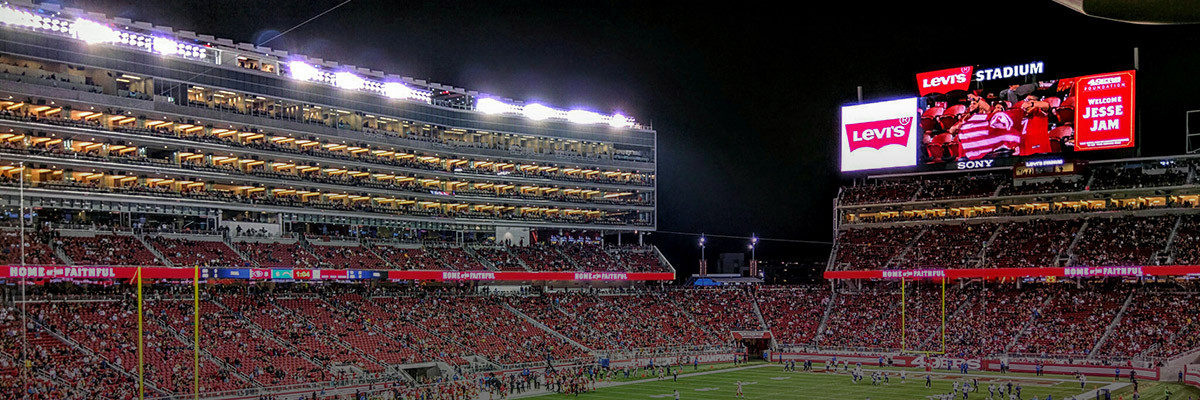
Photo: Travis Wise, flickr
Authors
-
Julia Robinson
Former Manager, Communications, BSR
Workers are packing up the football-themed decorations along Market Street in San Francisco, the crowds have flown out, and both buses and San Franciscans are back to their normal routines after Super Bowl 50.
I’m not much of a football fan, but as one of the authors of a 2015 BSR report on responsibility in advertising, I watched the Super Bowl ads—priced this year at about US$5 million per 30-second spot—with great interest.
As we wrote last year, brands that embrace purpose, transparency, and consumer empowerment will create more effective, engaging ads among an audience that has learned how to block, skip, and otherwise ignore sponsored content.
A few of the spots I saw last Sunday took this philosophy to heart.
Budweiser’s #GiveADamn
Bud’s anti-drunk-driving public service announcement stayed true to its brand persona while taking on a serious issue. Oscar-winner and “notoriously frank and uncensored British lady” Helen Mirren berates anyone thinking of getting behind the wheel after a drink in a crisp monologue that manages to perfectly balance the seriousness of the issue with a sense of humor and self-awareness. The ad winks as it chides. Demonstrating brand authenticity is key to effective purpose-driven messaging—in this case, using humor and an unexpected but beloved celebrity to address a very material issue for the beer company.
Axe’s Find Your Magic
The men’s grooming products brand, notorious for its racy advertising, switched gears dramatically. The Axe spot champions men’s individuality, from a large nose, to a wheelchair, to, most notably, participation in a gender-bending vogueing competition in heels. Perhaps Axe is aligning more closely with parent company Unilever’s purpose-driven marketing—and taking a page out of Unilever’s successful Dove Real Beauty campaign, which used non-models and empowering messages to challenge beauty standards for women.
Colgate’s #EveryDropCounts
Colgate spent its Super Bowl slot on consumer behavior change. To raise awareness of water conservation, the toothpaste company used imagery of a man brushing his teeth at a sink while people fill up a bowl, wash a pear, and drink from the running tap. As Ad Age wrote, it was a “distinctive message on a day of consumerism.” Simple and effective, the spot also connected to a social media campaign that brought consumers, celebrities, and water nonprofit organizations into a conversation on sustainable lifestyles.
Although Super Bowl spots may have a way to go before reaching the levels of Patagonia’s “Don’t Buy this Jacket” or Chipotle’s “Scarecrow” conscious-consumption campaigns, the messages of this year’s commercials could signal a further shift in advertising messages away from pure product pitches and toward a new model that focuses on positive change. As these ads demonstrated, this can be done effectively with cleverness and humor, rather than sermonizing. As Dame Helen reminded us, while sipping a Bud, “This is supposed to be fun.”
Let’s talk about how BSR can help you to transform your business and achieve your sustainability goals.